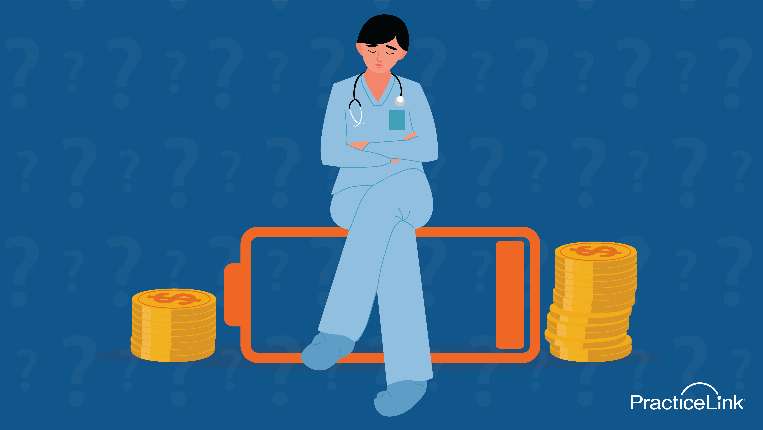The hidden link between compensation and physician burnout
 Posted by Jackie Farley
Posted by Jackie Farley

The increase in physician burnout has become an alarming concern in the healthcare industry. Burnout affects both the well-being of physicians and the quality of patient care. While there can be many contributing factors, the connections between compensation and physician burnout cannot be ignored.
The pursuit of balance
Physicians are dedicated professionals who commit years of their lives to training, long hours of patient care and an unwavering commitment to their patient’s well-being. However, the nature of these demands can quickly lead to a serious work-life imbalance, which can contribute significantly to burnout.
Long hours and stress
Many physicians work a substantial number of hours, with the expectation to be available around the clock. The unrelenting stress and exhaustion caused by working these types of shifts can lead to burnout.
Compensation disparities
In some cases, the compensation for the demanding work physicians may not align with their financial needs or expectations. This can significantly exacerbate feelings of frustration and dissatisfaction.
The financial stress factor
While physicians are typically well compensated, the educational debt they accumulate during medical school can be quite significant. The journey to becoming a physician often involves taking on substantial student loans, which can take years to repay.
Physicians’ financial stress can be compounded by the cost of living, especially in areas with a higher cost of housing, transportation and childcare. The need to repay these student loans, combined with the rising cost of living and other financial obligations, can place a considerable burden on physicians and lead to financial stress - particularly if the compensation is not enough to provide the expected relief.
Overcoming the physician compensation-burnout connection
Healthcare organizations and physician candidates can take proactive steps to address the connection between compensation and burnout.
- Fair compensation: Recognizing the dedication and hard work of physicians by striving to offer fair and competitive compensation packages can alleviate financial stress and enhance job satisfaction.
- Transparency: Organizations should be transparent about compensation structures and provide clarity about the financial terms of employment, to help physicians make informed decisions and better plan their finances.
- Loan repayment assistance: Making loan repayment assistance or forgiveness programs available to physician candidates can help alleviate the burden of student loans and make the financial aspect of a medical career less stressful.
- Financial wellness programs: Healthcare organizations can implement financial wellness programs to provide physicians with tools and resources to manage their finances more effectively.
- Work-life balance: Encourage physicians to maintain a healthy work-life balance by implementing flexible scheduling, allowing time off and supporting physician well-being programs.
- Open communication: Physicians should be able to have an open dialogue regarding their financial concerns with organizations, which can lead to tailored solutions and support.
- Self-care: Understanding the importance of a healthy work-life balance is essential. Physicians should prioritize self-care and feel comfortable seeking professional help when needed to negate the impact of burnout.
The connection between physician compensation and burnout is a complex and multifaceted issue. By acknowledging this connection and taking proactive steps to address it, healthcare organizations and physicians can work together to create a more supportive healthcare environment. This will not only enhance physician well-being but also improve the quality of patient care, leading to a healthier medical community.

